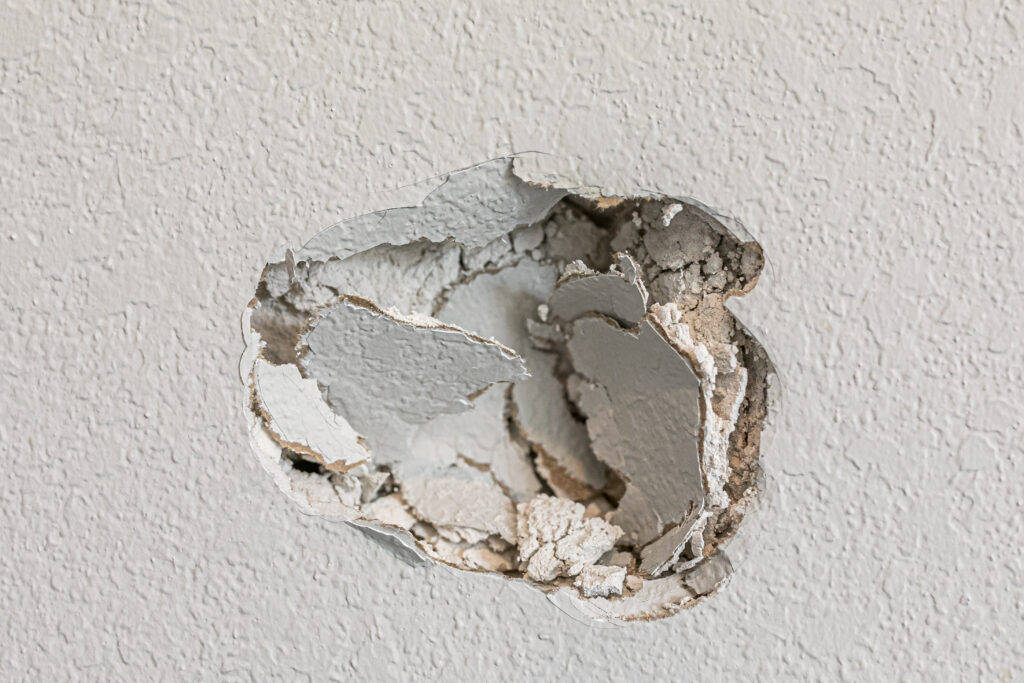Punching things, breaking things, throwing things out of frustration—some businesses have even found a way to monetize these common venting techniques. The Break Room, with locations all over the world, offers customers the chance to grab a bat or any other heavy stick of their choice and literally smash some dishes, glasses, or appliances in a room.
But why do so many people want to destroy or punch things when upset? And does it actually help?

The release of tension that brings us to acts of aggression when we’re mad is thought to be stress-relieving. Yelling, screaming, slamming doors, throwing things—these are all considered to have the same venting effect. Whether it’s a “no” from your parents to something you really wanted to do, receiving criticism, or a major breakup—these things can make you furious. In your rage, you may be shaking. Your heart may be pounding, your ears ringing, and you’re sweaty, hot and red-faced. You can’t think clearly, but you just know you need to punch something. Instead of a person, you pound your fist into a wall.
Problem is, punching a wall isn’t really a solution. While it may or may not help you in the immediate moment with a cathartic release of stress (which is why some mental health treatment centers offer kickboxing as an experiential therapy), nothing really changes in terms of your anger management issues. In fact, one 1999 study suggested that people who punched something when upset actually became angrier and more aggressive later on than those who didn’t punch anything.
Ok, fine, I won’t punch a wall. What should I do instead?
We’re glad you asked.
There are definitely better ways to release your frustration and distress instead of engaging in activities that lead to fractured hands and trouble with your parents (and maybe even the police, if it’s public property damage). In Anger Management, a program often incorporated at teen mental health rehab centers, you learn that you don’t need to hold in your anger—you just need to express it in other ways.
Also, if you consistently struggle with anger, you may want to consider whether you have a mental health issue. This can be oppositional defiant disorder (ODD), disruptive mood dysregulation disorder (DMDD), or conduct disorder—all characterized by extreme anger and irritability.
Or, it can be another mental health issue like depression or anxiety. Those who struggle with excessive anger are more likely to be clinically depressed or anxious too. Why? Anger ruins family relationships, friends, jobs, and more. It negatively affects every area of one’s life. Teens with anger issues often have low self-esteem, because of the shame or remorse they feel after acting out. It could go the other way, too, though—with anger being a symptom of depression. In fact, in the DSM, irritability and angry outbursts are symptoms of depression for adolescents.
If you do have a diagnosed mental health issue, you might need to attend a teen rehab center. There are residential treatment centers (RTC), intensive outpatient programs (IOP), and partial hospitalization programs (PHP) for adolescents who struggle with extreme anger. There are also dual-diagnosis treatment programs for teens who have substance abuse problems in addition to their anger issues. But even if you don’t have an official mental health disorder, you should still get help for your anger if it’s becoming detrimental in your life.
What if My Spouse Punches Walls When Angry?

Punching a wall when angry is often considered to be a sign of domestic abuse. Throwing things when angry, breaking things when angry, and slamming doors when angry are all serious signs that an anger management program might be needed to help your spouse learn how to manage their anger in a way that doesn’t involve violence.
If your spouse’s anger leads to behavior that frightens you or leaves you feeling like you’re walking on eggshells, they’re not the only person who would benefit from professional help. Living with someone who has a hard time controlling their anger takes a serious mental and emotional toll.
Speaking with a therapist can help you understand how your spouse’s actions are impacting you and provide support as you figure out how to navigate your relationship.
Asking for help is especially important if you and your spouse have children. A key element of child abuse prevention is recognizing when children are living in a physically or emotionally unsafe environment and taking the necessary steps to make positive changes.
Why Do People Hit Themselves When Angry?
There are two main reasons why people hit themselves when angry: to “punish” themselves and to create a distraction from the feelings they’re experiencing. Struggling to manage anger can lead to feelings of low self-esteem and frustration at the self, and hitting oneself is sometimes an attempt to deal with those feelings.
All forms of self-harm, including hitting yourself when angry, happen because the act of self-harm creates an emotional response. Often, that response is a sense of relief that comes from being distracted by a new sensation.
Regardless of why it happens, hitting yourself while angry is an attempt at coping, and a professional can help provide healthier coping skills for managing acts of impulsive anger.
Is It Normal to Punch Holes in the Wall?
It’s fairly common to see people on TV and in movies punch a wall when they’re angry. However, most people can refrain from violent and destructive acts, even when they’re very upset.
Punching holes in walls is a serious sign that you’d benefit from professional anger management treatment. A program can teach you the skills to regulate and process anger without resorting to physical violence.
Why Do I Want to Break Things for No Reason?

Experiencing a sudden urge to break things or looking for something to punch when angry isn’t exactly a typical response to anger, but it is understandable. Everyone experiences emotions differently. For some people, anger can be an intense experience.
It’s normal to want to find an outlet for aggression, especially when anger feels overwhelming. The key to healthy anger management is to find an outlet that doesn’t cause harm or involve violence.
If you feel the sudden urge to break things when you’re not angry, it’s a sign that you may be repressing your feelings. A mental health professional can help you develop a deeper understanding and can guide you to find outlets that help you identify your emotions and process them in a healthy way.
Does Cognitive-Behavioral Therapy (CBT) Help Cure Anger Problems?
Cognitive-behavioral therapy (CBT) is a highly effective method of helping people learn how to manage feelings of anger. Anger problems don’t get “cured,” but they can get better.
Anger issues happen for different reasons. They could be related to factors like unresolved trauma, the effects of alcohol abuse, or imbalanced brain chemistry. It’s not uncommon for parents dealing with childhood anger to be left deeply confused by their child’s behavior.
Whatever the reason behind anger, CBT is a style of therapy that can provide the insight and skills to develop a different approach to handling emotions.
Final Thoughts
Dealing with overwhelming anger, especially when it leads to violent behavior, isn’t fun for anyone. Anger management treatment can be a life-changing experience for you and your loved ones.
Punching a wall when angry isn’t normal, and it isn’t healthy. The good news is that it is possible to learn alternatives. You just have to recognize there’s a problem and ask for help.
































































